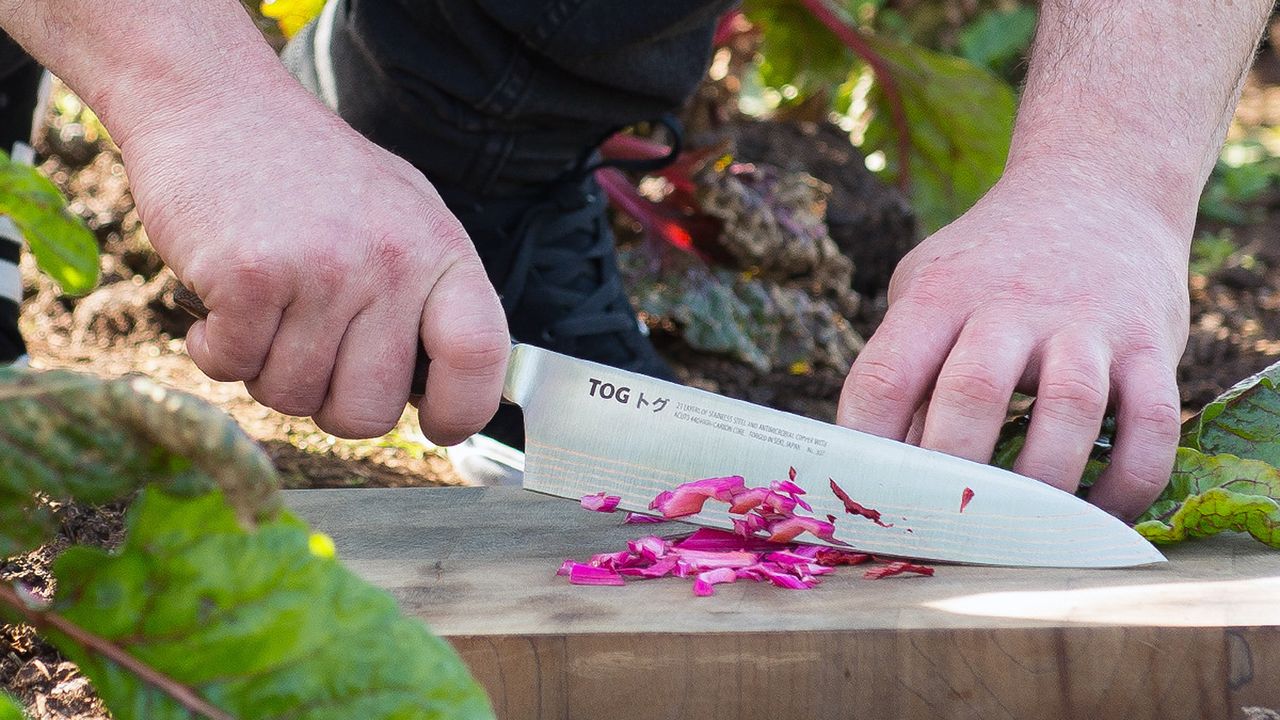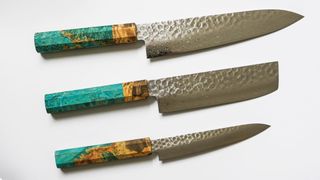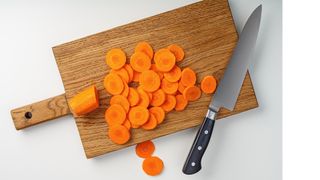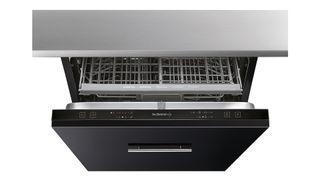Home LivingAppliancesKitchen4 mistakes everyone makes with kitchen knives: cut out these errors and keep your edgeGet sharp and follow our kitchen knife mistakes adviceWhen you purchase through links on our site, we may earn an affiliate commission.Here’s how it works.
Home LivingAppliancesKitchen4 mistakes everyone makes with kitchen knives: cut out these errors and keep your edgeGet sharp and follow our kitchen knife mistakes adviceWhen you purchase through links on our site, we may earn an affiliate commission.Here’s how it works.
Get sharp and follow our kitchen knife mistakes advice
When you purchase through links on our site, we may earn an affiliate commission.Here’s how it works.
(Image credit: TOG)

(Image credit: TOG)
I wrote and maintain our guide to thebest chef’s knives. I cook every day and am very good at it, if I say so myself. I currently own 13 knives and use most of them on a fairly regular basis, although I keep telling myself I will cut back to just using my two favourites all the time, as that seems like a better approach. Over the years I have probably used over 100 knives; everything from £5 shanks from supermarkets to£250 knives that I probably should not have spent so much money on.
I’ve made every mistake it’s possible to make with my knives, including some rather nasty onion-chopping injuries. Here are the four most basic blade errors that all aspiring chefs should shun…
1. Buying the wrong knives in the first place
There are just so many shapes and sizes to choose from(Image credit: Japana)

There are just so many shapes and sizes to choose from
There are just so many shapes and sizes to choose from
(Image credit: Japana)
Obviously, it’s easy to spend too little on a knife, and end up with something crap. However, it’s also easy to spend way too much on a knife that is just not suited to you, and which you feel too intimidated to use. Doing that is considerably more stupid than buying a cheap knife, and harder to correct. There is actually something to be said, from a practical point of view, for using cheapo knives for a short period of time and then binning them/putting them in a police knife amnesty bin, and buying some more. This is horribly wasteful though, so please don’t do that.
For most people, in my experience, the best knife is a small-to-standard size (16-20cm, let’s say) chef’s knife, costing about £50-£100.
If you are a nimble kind of person who can dice onions at lightening speed, you want something lighter and you could also consider a Japanese-style knife rather than a European one. If you are more of a no-nonsense, slow and steady, relatively poorly co-ordinated person like me, a slightly heftier German cook’s knife is probably the ideal. Why use finesse when you can use force?
Most people like to have numerous knives, but for budgeting reasons you are probably better off buying just one or two knives that are as good as you can possibly afford, and using them all the time so you completely master them.
Sign up to the T3 newsletter for smarter living straight to your inbox
Get all the latest news, reviews, deals and buying guides on gorgeous tech, home and active products from the T3 experts
However, as I mentioned before, while I think this is a great idea in theory, I’ve never been able to bring myself to do it in practice. Go figure.
2. Not sharpening your knives
Knife sharpening is a very worthwhile skill to learn(Image credit: Getty)

Knife sharpening is a very worthwhile skill to learn
Knife sharpening is a very worthwhile skill to learn
(Image credit: Getty)
Bert Beagley-Brown ofTog knivesis a man who knows his blades and he suggests you sharpen your knives every couple of months. We’ll have a full interview with him here, just as soon as I finish transcribing the massive conversation we recently had – it will need a lot of ‘cutting’ in terms of length, aptly enough.
However, he also said that you could do it every six months or even once a year and you will see massive improvements in the usefulness of your knives. The important point is that you should ideally sharpen your knives at regular ‘points’, or you’ll lose your ‘edge’ in the kitchen. Do you see?
A lot of people use knife ‘sharpeners’ and rods that actually hone the blade rather than sharpening it. That is to say, they sustain a reasonably sharp edge for longer, rather than actually improving it. There’s nothing wrong with that of course, but forpropersharpening, you should put away your rods, and those pull-through, handheld things, buy some whetstones and sharpen your knives like a samurai warrior, or Sly Stallone in a Rambo film. It must be said that this is a rather daunting process, so you may be better off paying a professional to do it for you.
Whatever method you choose, the key point here is that buying a really good knife and then not sharpening and maintaining it is a crazy thing to do. A more expensive knife will tend to stay sharper longer, but being pricier doesn’t imbue it with magical powers, and it will get gradually more and more blunt every time you use it, until you reach the point that you might as well have bought a cheap knife.
3. Using your knife to scrape things off chopping boards
Don’t even think about it(Image credit: Getty)

Don’t even think about it
Don’t even think about it
(Image credit: Getty)
You’ve just chopped up some veg. The most natural thing in the world to do is to scrape your ingredients into the pan, using the knife you just chopped them with. STOP!
For years, I used to do this myself. Then someone pointed out that dragging the blade of the knife across a wooden or plastic surface would inevitably blunt it faster. Once this is pointed out to you it is screamingly obvious, but how the hell are you now meant to get your freshly chopped ingredients from board to pan?
Simple: flip the knife over and use the top of it. Why didn’t someone tell me this decades ago?
4. Putting knives in the dishwasher
NOOOOOOO!(Image credit: DeDeitrich)

NOOOOOOO!
NOOOOOOO!
(Image credit: DeDeitrich)
Here’s a true story. I was once sent some quite nice chef’s knives that specifically said they could be put in the dishwasher. Having been raised to believe that dishwashers are essentially the King Herod of knife care, I was naturally rather sceptical about this, but there it was in black and white on the packaging. Some knives and posh pans will say ‘dishwasher safe… but we recommend hand washing’ but these knives, bold as brass, proclaimed’Suitable for the dishwasher', so I followed that advice. Within a month, they all started to get rust spots.
As I understand it, knives don’t mind the hot water of a dishwasher so much; it’s the rather harsh chemicals in dishwasher detergent/tablets, and the intense humidity as they go from the washing to the drying phase.

Build bigger arms in just 30 minutes with this 5-move dumbbell-only workoutIt’ll leave the biceps and triceps popping!
It’ll leave the biceps and triceps popping!

OMEGA puts the moon on your wrist with its new Speedmaster Moonphase MeteoriteOMEGA adds two new Moonphase Meteorite watches to its Speedmaster line-up
OMEGA adds two new Moonphase Meteorite watches to its Speedmaster line-up